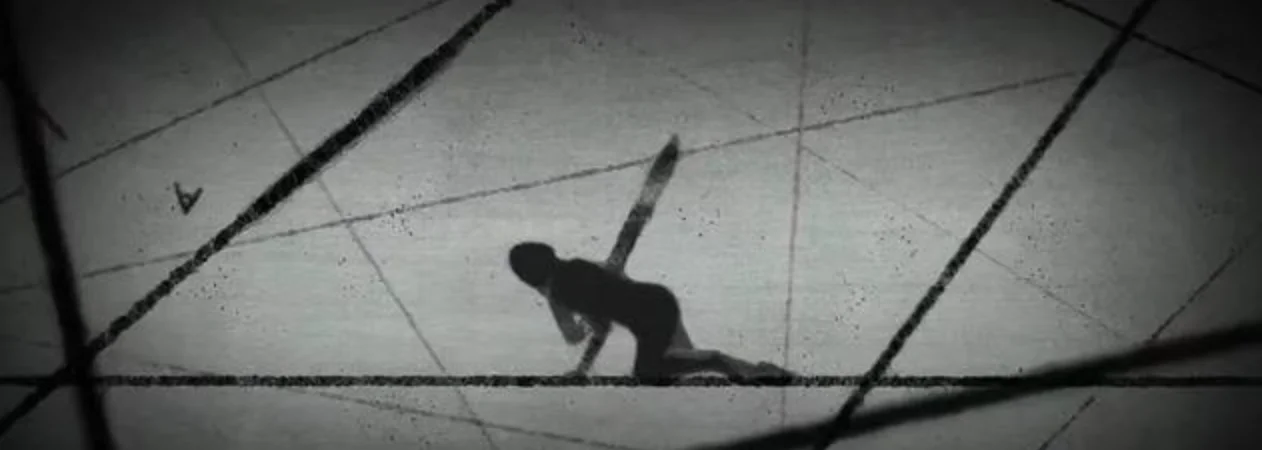The Netflix documentary “Cyber Hell: Exposing an Internet Horror” mainly focuses on interviews with the media and the police, combined with animation and situational representation, and tells about the crime of digital sexual exploitation that occurred in the chat room of the Korean social networking platform Telegram.

The interspersed animation part is brilliant, with a strong, dark style rendering the terrifying, depressing atmosphere.

There is a lot of cruelty that is difficult to reproduce with images, and animation can create symbolic, metaphorical, stylized images.

Victims are at the mercy of an unseen threat lurking in cyberspace.
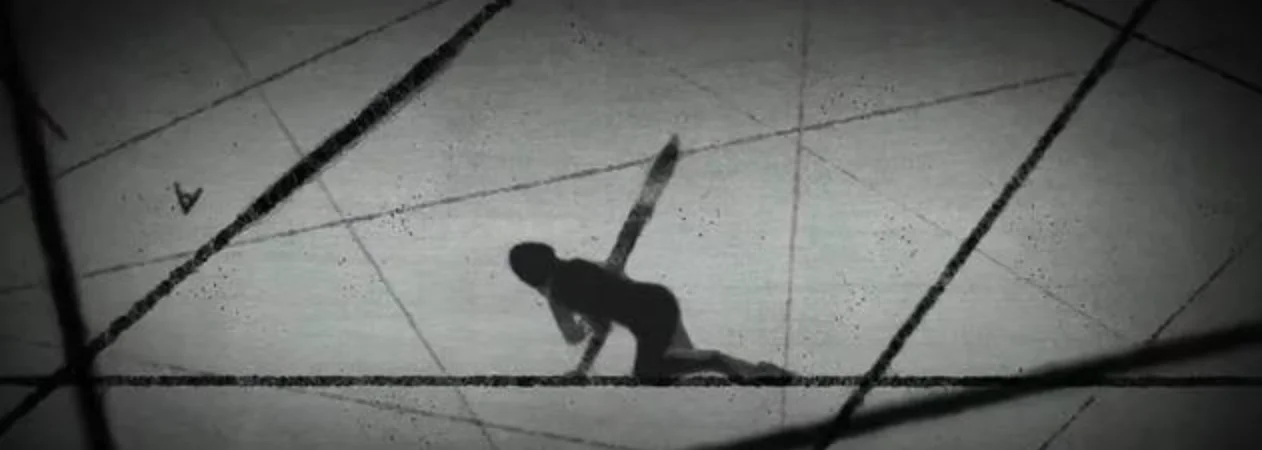
In the animation, one hand makes a “command” action, and the other hand makes a fist to represent a tough threat. The victim becomes even smaller because of fear and is played between the palms of his hands.
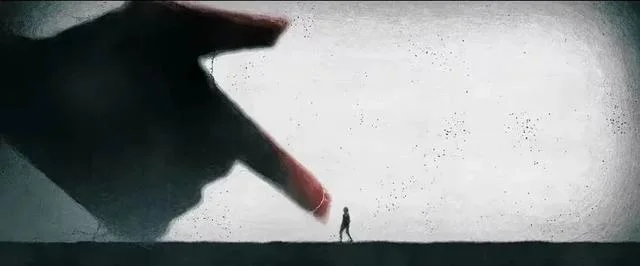
Eye-catching red eyes in black and white tones symbolize violence and death, reinforcing the visual sense of fear.
The bodies and minds of the victims were severely oppressed. As the surrounding black squeezed toward the center, the ever-shrinking space and distorted postures made the audience outside the screen feel psychologically suffocated.
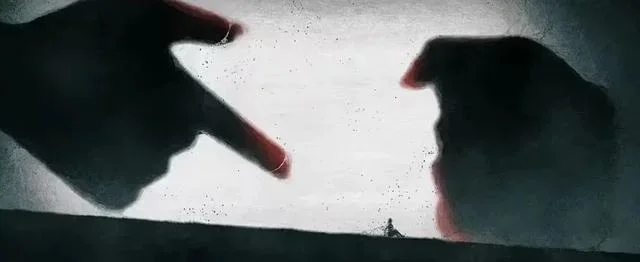
Still huge hands that hoist victims up effortlessly, a metaphor for an invisible but real manipulation that treats people like marionettes as their own trophies.
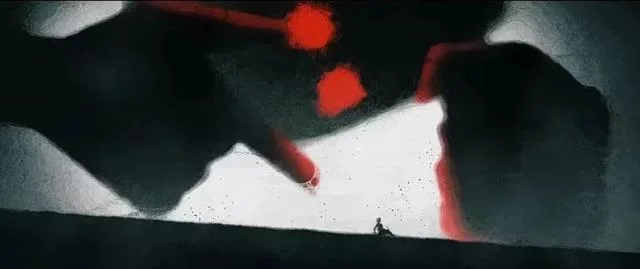
The crowd of people below were clapping their hands, cheering and watching this “puppet show”, looking forward to the moment when people were left behind, and they were praised by everyone for violence and crime, implying that everyone was the perpetrator.
In the end, the victim is left behind, like falling into hellfire.
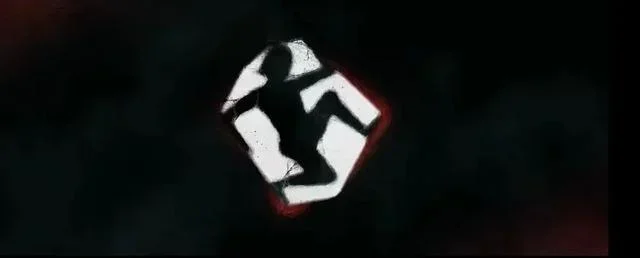
It is still the sense of sight of the marionette, metaphorically under the evil gaze of the perpetrator, the victim is materialized, loses his own subject consciousness, and is pulled by the rope, as if being “divided by five horses”.
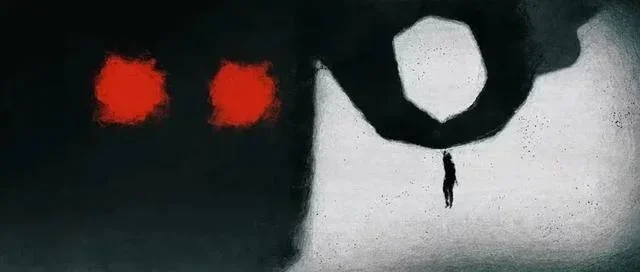
The network of the city, the gaze and viewing of people connected by the network, is like a big net, and the victim is tied up in this net, standing at the top of public opinion, and cannot escape the fate of being controlled; commodity packaging and display windows are also watched. , a symbol of consumption, the watermark is a proof of its self-worth.
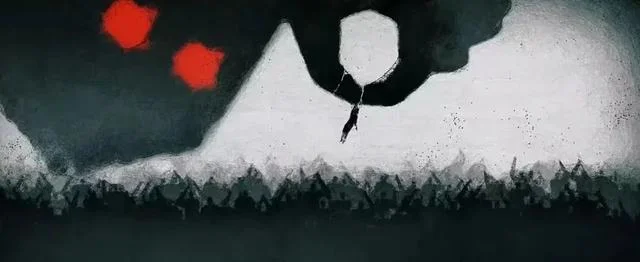
The victims of “Spotlight” and “Han Nation Daily” refer to the fact that the newspapers and TV stations reported on Room N, which angered the prisoners.

The prisoner threatened to let a victim jump from the roof of the SBS TV station to prove that he has the ability to control the life and death of others. The subtext is that your report killed them.
He wanted to prove that he was as powerful as a god, but looking at his inner self, it stemmed from a sense of incompetence in reality.
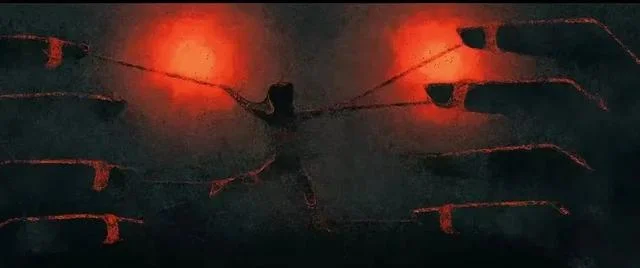
But it is a pity that the criminal psychology of Room N is hardly mentioned in the documentary. Why did they do this?
When the crimes of these people exceed the scope of normal people’s imagination, it may be judged whether that person is a pervert or a lunatic? An outlier anyway?

When defined in this way, his crime is actually regarded as an occasional special case.
The “sense of relative deprivation” caused by social oppression has evolved into a “sense of social exclusion”, aggravating the prisoners’ already distorted values and destroying the lives of others. “I live like this and you should too.”, “You should be destroyed like me.”

Then targeting vulnerable groups to commit crimes, the prisoner has assessed that only this type of people “makes sense”, and this choice just reveals his own incompetence and despicableness.

Including cybercrime, South Korea has no serial killings against men, while the West does.
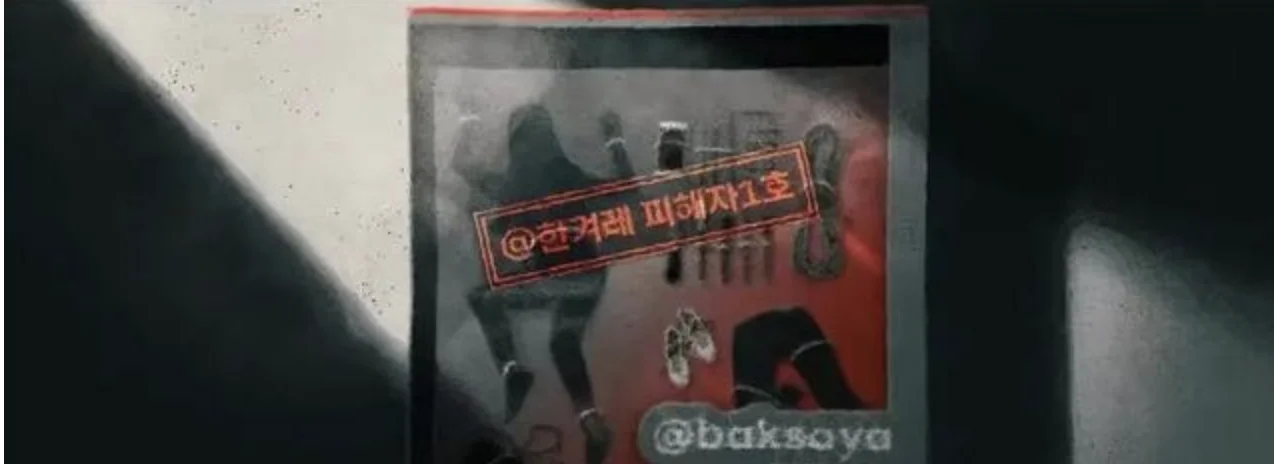
From the criminal psychology of one person, to the criminal psychology of a group of viewers in Room N, to the social and cultural influence behind it, there is actually a lot of room for discussion.

This is also another regret that I feel. In the end, there are too few reflections on social issues and public misunderstandings. Professor Li Xiuzhen of criminal psychology only put a few words, and even put the things that should be emphasized and the subtitles at the end of the film. Put together, as if additional.
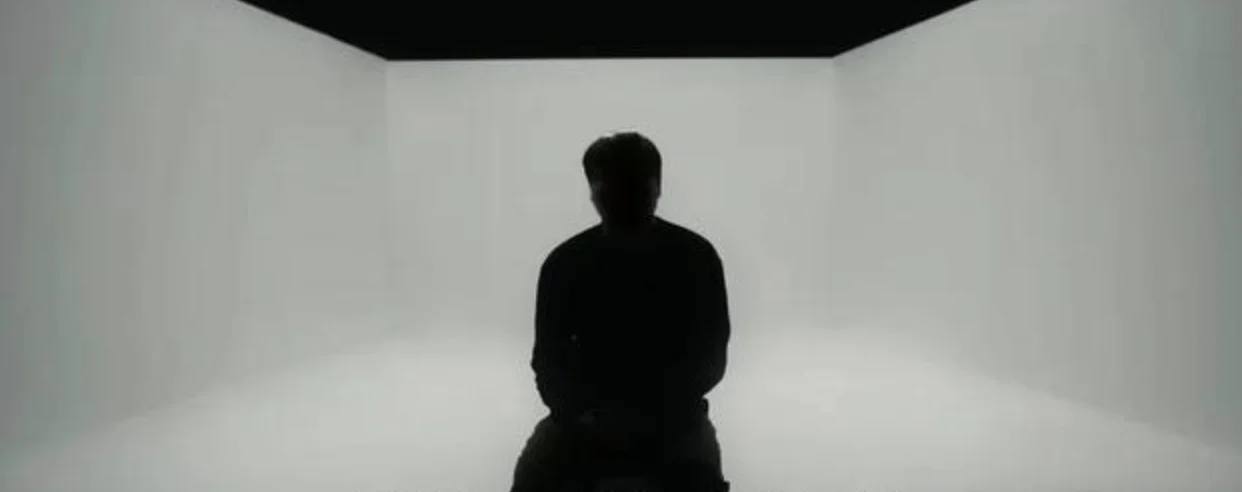
Overall, this can’t be regarded as a high-level excellent documentary, but because of its subject matter and the media people who have worked hard behind it.

Even if it is repeated again, the journalistic spirit of reporting the truth and the kindness of helping victims make this documentary more valuable than the image itself.
Related Post: ‘Cyber Hell: Exposing an Internet Horror’: Horror as a suspect suddenly enters.
